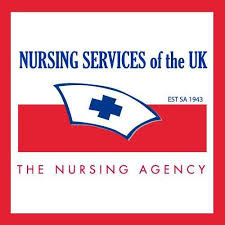The Economic Value of Nursing
/When we think of nurses, we often picture compassionate professionals at a patient’s side, administering medication, offering comfort, and saving lives. But the true economic value of nursing extends far beyond the bedside. In fact, investing in nurses is not just a moral imperative; it’s an economic one.
Understanding the Economic Impact
Nurses are the largest staff group in the NHS and the backbone of healthcare delivery in the UK. Their work directly influences patient outcomes, hospital efficiency, and public health. But what’s often overlooked is the economic impact of their contributions, from reducing hospital admissions to improving long-term health outcomes.
According to the British Journal of Community Nursing, NHS community nursing teams had over 42.4 million contacts in 2019/20, costing more than £2 billion. These services helped reduce hospital admissions, supported early discharges, and managed chronic conditions at home, delivering significant healthcare cost savings. These savings are not only financial, but they also reflect improved patient outcomes and reduced strain on acute care services.
Investing in the Nursing Workforce
Burnout, stress, and poor mental health among nurses are not just personal issues; they’re economic ones. A 2024 commentary in Evidence-Based Nursing revealed that mental health challenges among nurses lead to increased absenteeism, turnover, and reduced quality of care. This ripple effect strains the entire healthcare system and drives up costs.
That’s why nursing workforce investment is essential. Supporting nurses through mental health resources, fair pay, and professional development isn’t just good for morale; it’s a strategic move to retain talent and reduce long-term costs. A resilient and well-supported nursing workforce is key to ensuring continuity of care and maintaining high standards across all healthcare settings.
A Smart Investment
Community nursing plays a vital role in integrated care systems. These nurses manage complex conditions at home, prevent hospital readmissions, and support end-of-life care, all of which reduce pressure on hospitals and lower healthcare costs.
Yet, much of their value remains unquantified. The Healthcare Financial Management Association (HFMA) has called for better data collection and investment to fully capture the economic value of community-based care. With the right support, community nursing can drive even greater healthcare cost savings by shifting care from hospitals to home, where it is often more effective and more affordable.
Real-World Impact
Let’s consider a real-world example:
A patient with advanced COPD receives regular visits from a community nurse. Through medication management, oxygen therapy, and education, the nurse helps the patient avoid multiple hospital admissions each year. Each avoided admission saves the NHS thousands of pounds while improving the patient’s quality of life.
Multiply that by thousands of patients, and the economic impact of nursing becomes undeniable. Nurses are not just caregivers, they are economic drivers. By recognising and investing in their full value, we can build a more sustainable, efficient, and compassionate healthcare system. At Nursing Services of the UK, we’re proud to support nurses who make a difference every day, not just at the bedside, but across the entire healthcare economy.



